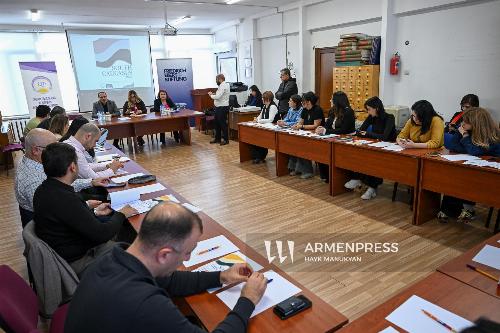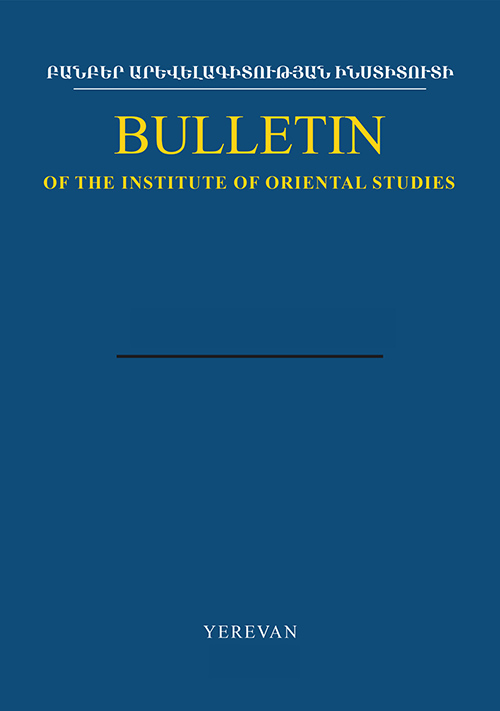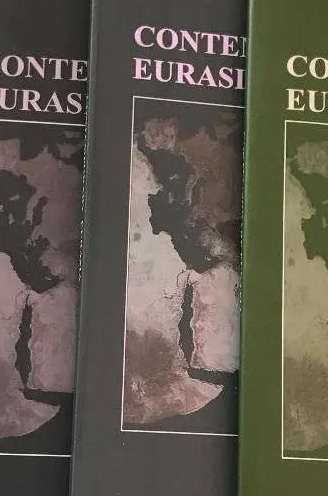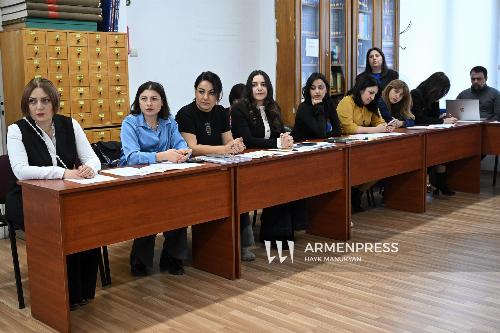
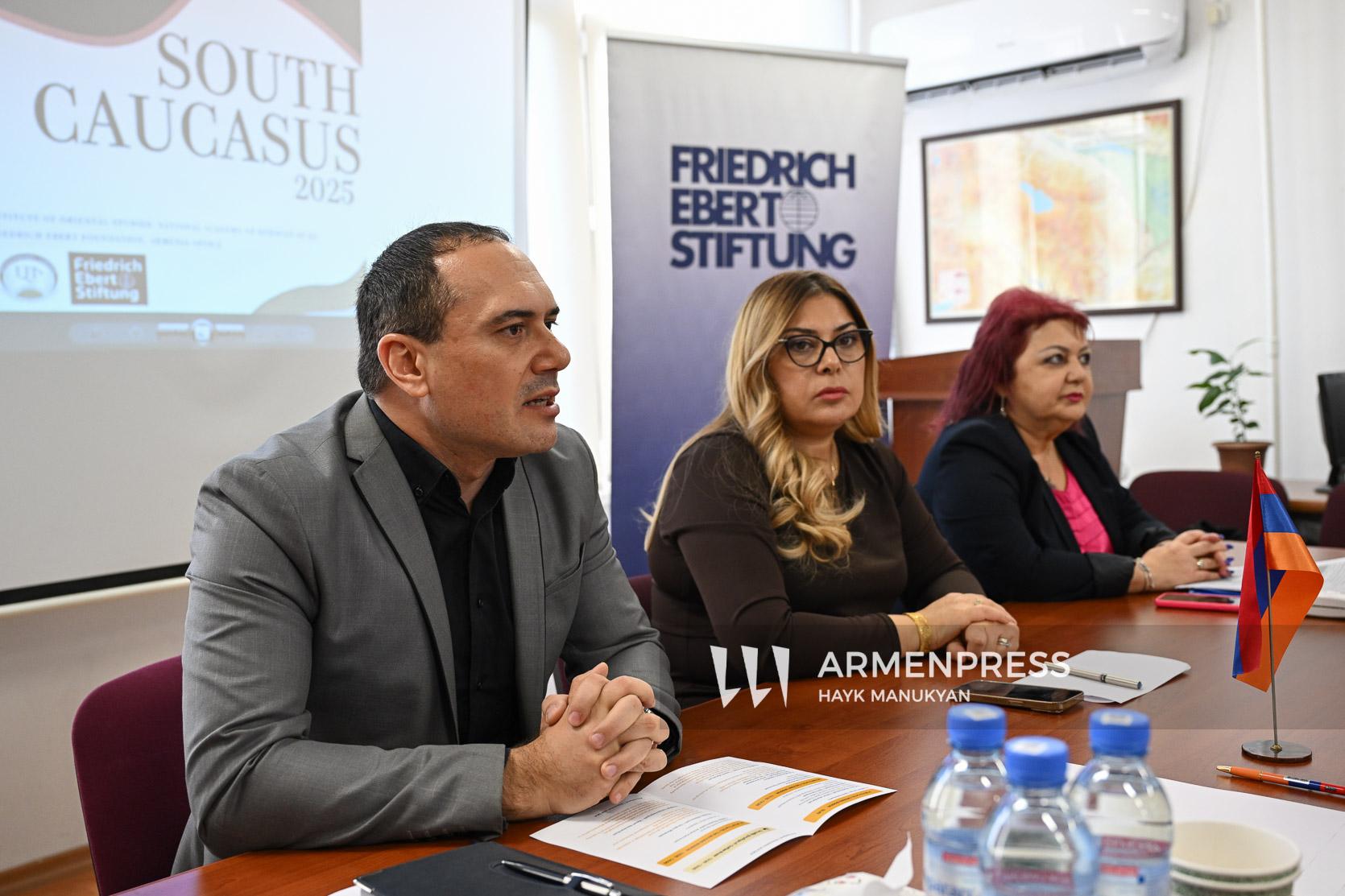
The Institute of Oriental Studies of NAS, RA, is developing ongoing cooperation with the Armenian office of the Friedrich Ebert Foundation, which has led to the third joint international workshop, entitled "South Caucasus-2025". The event took place on November 14, 2025, in the hall of the Institute of Oriental Studies, bringing together researchers from the "Public Relations and Information Centre" of the RA Prime Minister's Office, the Orbeli Analytical Centre, and the Caucasus Institute.
The opening speech of the workshop was delivered by Gohar Iskandaryan, Director of the Institute of Oriental Studies, who emphasized the importance of scientific discussions of this format, within which the Institute's leading researchers present the results of years of scientific work. The Director also expressed satisfaction that the memorandums of cooperation signed between the Institute and the "Public Relations and Information Centre" of the RA Prime Minister's Office, as well as the Caucasus Institute, are being effectively implemented.
Naira Gevorgyan, Head of the Yerevan Office of the Friedrich Ebert Foundation, highlighted the importance of continuing and deepening cooperation with the Institute of Oriental Studies, emphasising the need to organise scientific discussions on current international and regional issues, including Armenia's domestic and foreign policy.
The moderator of the workshop, Armen Petrosyan (Public Relations and Information Center of the Prime Minister's Office of the Republic of Armenia), noted that the analysis of the geopolitical dynamics of the South Caucasus in 2025 is also important for understanding the content of the peace treaty signed between Armenia and Azerbaijan in Washington on August 8 and its possible impacts, emphasizing the importance of involving leading experts in the field.
Levon Hovsepyan, Head of the Turkey Department; Tatevik Manukyan, Research Fellow; and Artyom Tonoyan, Senior Research Fellow of the Iran Department, addressed the first session. They presented the domestic and foreign discourse of Azerbaijan and Turkey related to the peace process with Armenia, as well as the peculiarities of official and public perceptions in this context.
The second session featured speeches by Sergey Minasyan, Deputy Director of the Caucasus Institute, and Nazeli Navasardyan, Senior Researcher at the Department of International Relations of the Institute of Oriental Studies. Their reports addressed the balancing tendencies of Georgia's foreign policy, the dynamics of Armenia-Georgia relations, the complex issues of Georgia's relations with the EU and the US, as well as the main narratives of Georgia's national vision and public perceptions.
In the third session, Araks Pashayan presented the key processes at play in Armenia's foreign policy, with a special focus on the intersection of identity and politics, as well as official approaches to peace. Davit Bragvadze, a specialist in international security issues, invited from Tbilisi, spoke about the transformation of the main directions of Georgia's foreign policy and the assessment of Armenia's foreign policy priorities, presenting the topic from the perspective of Tbilisi.
At the end of the sessions, substantive discussions, a question-and-answer session, and a general summary of the workshop took place. Representatives from state structures, think tanks, diaspora organizations, novice researchers, and students undertaking internships at the Institute attended the event.
The development of the workshop program and the organisation of the event were carried out through the efforts of Araks Pashayan, Head of the International Relations Department of the Institute of Oriental Studies.

